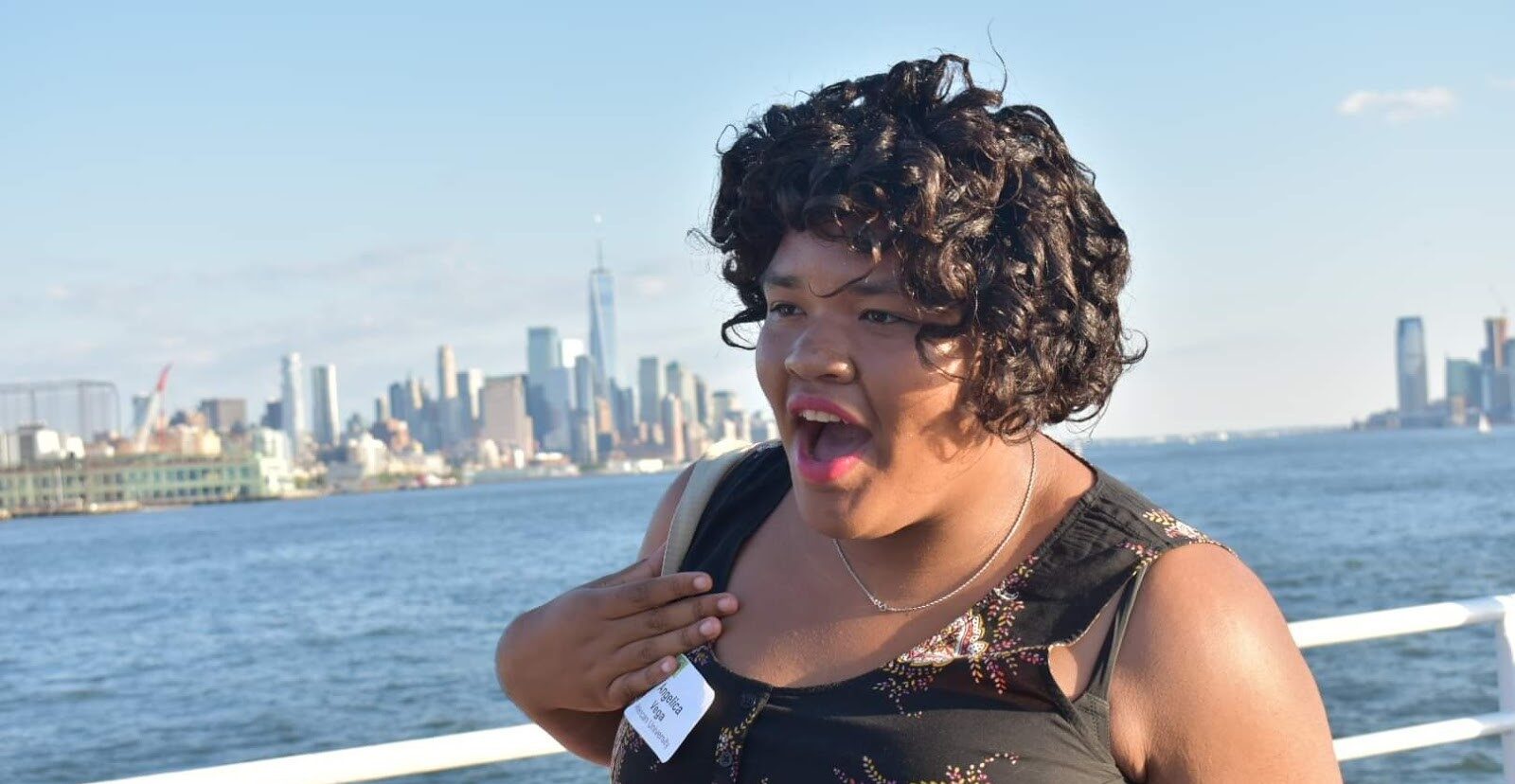
by Angelica Vega
In early May of this year, American University held its 139th commencement online. What was supposed to be a day of excitement and recognition of accomplishment was instead a rather disappointing send-off, tainted by the aftermath of sudden college closures, move-outs, and missed good-byes as we learned to deal with the global pandemic.
One of the most difficult transitions we faced that last semester was the shift to remote learning. Finding reliable Internet access, and adjusting to the varied home environments we were suddenly forced to study in, were only the first of many challenges we needed to navigate.
For students like myself who live with speech disabilities, online classes presented a particular difficulty. However, thanks to one specific course, I was not only able to graduate on time, but I also discovered what a truly inclusive learning environment could look like.
Even before the pandemic, I faced multiple barriers that prevented me from acquiring any accessibility accommodations for my speech disability. Many healthcare insurance policies, including my own, do not cover speech/language pathology services. As such, I was unable to afford the cost of having a private pathologist sign the required paperwork for accommodations. This isn’t an uncommon case for other Black students, who are all too often faced with similar barriers between them and the tools they need to succeed academically.
According to a study by the Commonwealth Fund in 2016, nearly 1 out of every 4 Black Americans lack a stable source of health care, as opposed to 1 out of every 5 White Americans. Additionally, Black Americans who do have access to some form of health care, such as myself, are repeatedly burdened with limited access to different healthcare services, as well as a general lack of high-quality care. Just about every accommodation I received during my time at college was an unofficial one, permitted after disclosing my disability to individual professors during office hours. While I am grateful to those professors who were willing to work with me, there were many other professors who retained their strict and oppressive policies despite how they conflicted with my disability, including punishingly low tolerance for grammatical errors and mandatory speaking participation without alternatives.
During my final semester, I took a philosophy course called Disability Law and Ethics with Professor Ariel Simms. In the first two classes we had (before the pandemic), we were asked to create an in-class laptop usage policy that would accommodate the needs of both students with and without disabilities. This exercise, as well as her other lessons, were designed to help transition our mindsets away from the traditional, medical model of disability towards a more social model of disability. Through both readings and hands-on exercises, we developed a better understanding of the social barriers that prevent many people with disabilities from accessing opportunities and receiving accommodations that might enable that kind of access, while also learning the importance of intersectionality between topics such as race, gender and disability.
Professor Simms’ grading policy also provided a variety of options for earning class participation points, from talking in class to writing on the online discussion board, to even attending her office hours after class. She even allowed us to correct structural and grammatical errors in our essays after their initial submissions. Everything she did worked to establish an environment where those with communication disabilities could express themselves without feeling judged, limited or unfairly penalized. In her classroom, I truly felt as though my lived experiences had been validated and embraced.
In mid-March, when American University made the decision to move students off campus, classes had to be conducted online for the remainder of the semester. Students had to quickly adjust to this new system while professors attempted to adapt their in-person curricula to an online format.
Professor Simms handled the dramatic shift incredibly well. She moved her classroom meetings to Zoom, adjusted the grading system to be more lenient, and offered notes and multiple platforms for us to process the information we would need for our final projects, all while consistently asking for feedback on the changes. Her diligent accommodations for all her students, and the thorough readjustment of her syllabus to suit our circumstances, were among the biggest contributing factors to my success and eventual graduation.
Professor Simms’ Disability Law and Ethics course exemplifies a model that all schools should adopt. Inclusive policies for students who, like me, cannot afford to request official accommodations, as well as instructor transparency and the involvement of students and their lived experiences. Implementing these elements into every classroom would radically change education for the better, regardless of whether those classes are online or in-person.
In the age of COVID-19, online classroom settings will likely be the norm for the foreseeable future. The upcoming school year faces multiple challenges for students who have IEPs. Access to adaptive technologies, closed captioning in video lectures, and providing speech therapy services online are a few of the considerations that colleges and schools need to make so that students with disabilities are not left in the dark. A survey by ParentsTogether in early May reported that only 1 in 5 families who enroll their students in special education are receiving all of the services those students need. It gets worse, with 4 in 10 families reporting that their students are not receiving any support at all! Ableism harms us all, and it is sadly embedded in many colleges and schools’ reopening plans. We are not a second thought – we have the right to education, and schools need to reflect that fact.
Professor Simms’ course is an excellent example for instructors to follow, even after the pandemic ends. Open communication, with a commitment to disability inclusion in the classroom, is what ought to be exhibited by every instructor. Societal changes start at the community level, with education laying the foundation. As I watched my online commencement with my family and friends, I looked towards the future in hope, anticipating the day when the validation and accommodation of students and their experiences would be commonplace for all.
Angelica Vega (she/her) is a CommunicationFIRST member and volunteer. In May 2020, she graduated from American University with a degree in philosophy, minoring in public health. During her senior year, she interned with Rep. Frank Pallone (D-NJ). Her long-term goal is to advocate for people with communication disabilities to be included in all aspects of society. She also aspires to run for public office.

